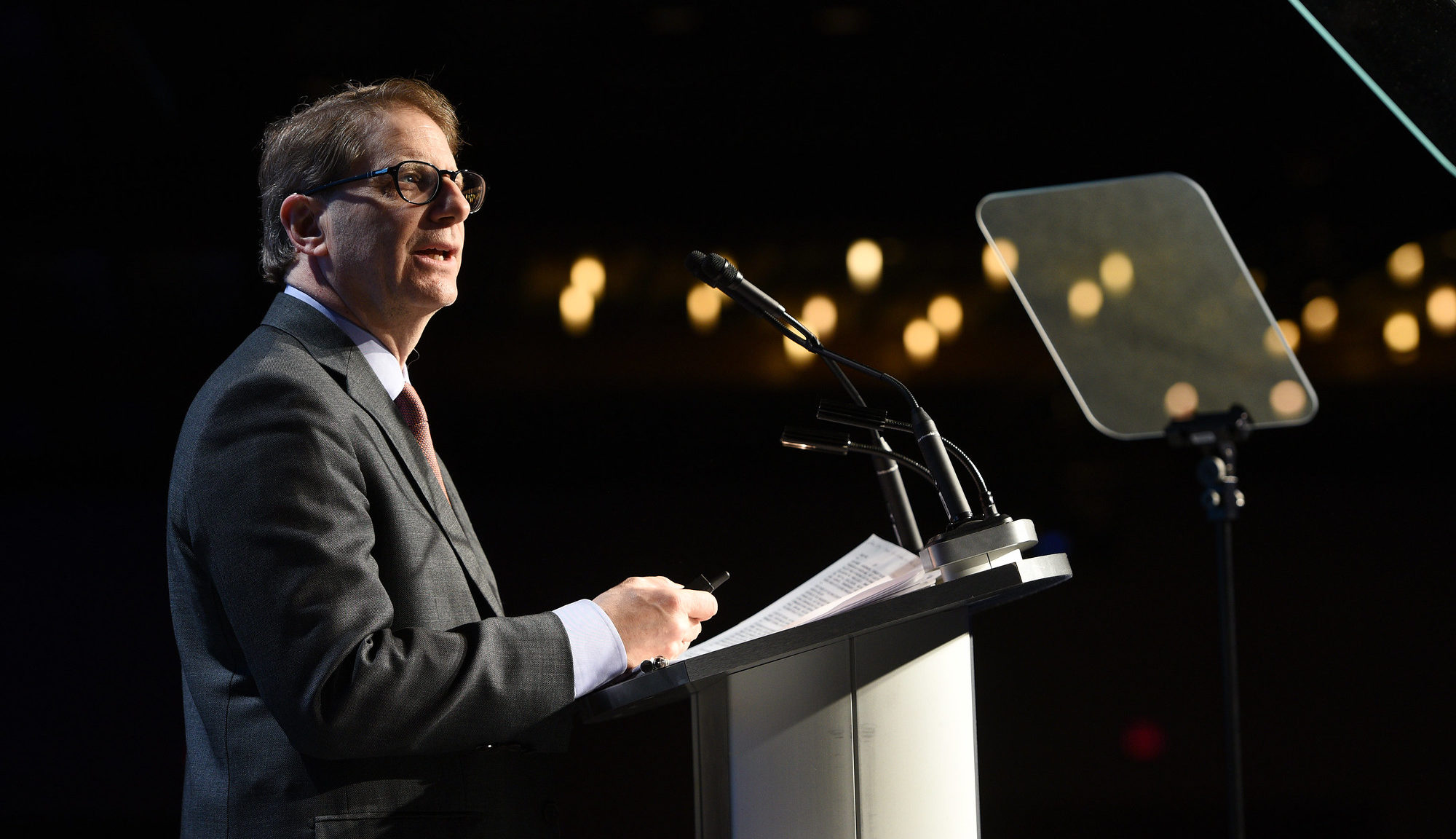
Edward Greenspon: ‘The world is blown around by momentous challenges.’
What does PPF’s President and CEO plan to do post-PPF? What’s his proudest achievement? How committed is he, really, to pickleball? Edward Greenspon discusses working with a new generation of Indigenous leaders, the reports he’s most proud of and his third act.
1. What has been your best PPF memory?
Edward Greenspon: I feel the need to cheat and go plural on memory! I am wowed every year at the Testimonial Dinner, when we get to celebrate great public service and leadership in a room full of people who care deeply about Canada and are always in a festive mood. I love being in rooms with so many smart people on the frontiers of change. PPF indulges my need for continuous learning. It always feels good when policymakers bend back toward pathways or recommendations we have put forward, such as on the future of news or online hate or an inclusive energy transition.
But above all for me has been the opportunity PPF has accorded me to work with a younger generation of Indigenous leaders who are intent on not just talking about sovereignty but exercising it. I come late to an understanding of the sins our country perpetuated, and I am wowed by the generosity, humour and vision of the leaders I have had the honour of getting to know.
2. What report are you most fond or proud of? Or is this like asking a parent to name their favourite child?
Edward Greenspon: As a parent of three kids, one of the things you love is their individuality. It often makes me wonder about both nature and nurture. Among the policy work children I adore, two probably stand out. One is the foundational piece of the Energy Future Forum, where we speak about the two competing narratives of the energy transition: an aggressive decarbonization one and an accelerated phaseout one – and why the former makes more sense than the latter.
Then, of course, there is the work we did in The Shattered Mirror and subsequent reports about the dire challenges to democracy of a weakened news sector limping along in a time of disinformation, hate and facts having become fungible to many people. Some of our recommendations, such as permitting news organizations to qualify for charitable status, have been widely accepted. Others are controversial. I find a lot of the criticism to be precious, but the important thing is that we are debating these matters. That’s what a think tank hopes for.
3. To your (many, many) adoring fans of the WONK podcast. Will you be returning for Season 2?!
Edward Greenspon: I have a mission to spread the word that WONK stands for WithOut Normal Knowledge so yes. I really love speaking with the WONKS out there!
4. Your daughter surfaced the hashtag #ThirdActEddie. There are rumours this involves… pickleball?
Edward Greenspon: On the day my appointment as PPF President was announced, that same daughter posted that I should remember I was the third member of the family in public policy – she and her youngest brother have beaten me to it! I’m not sure she had pickleball, my new obsession, in mind, but if perchance I don’t go pro, I still want to be involved in policy conversations and solutions. I can’t imagine ever disengaging. And I want to write more.
I’m stepping down as PPF President after what will be nearly nine years. I will remain as a Fellow and I look forward to new challenges that make me think and allow me to contribute to policy solutions that advance our great country.
5. Fall is going to be super busy — notably with the U.S.-Canada project, more reports on health and financial inclusion, the Atlantic Momentum 2 report, a fall lecture, an article you’re co-writing on a new Bretton Woods — you’re really going out on a bang, aren’t you?!
Edward Greenspon: The world is blown around by momentous challenges such as Russia’s aggression; the geopolitical competition between the United States and China; polarization, especially with our neighbour; how to manage climate change threats without shutting down the economy and losing the consent of the governed; how to extract the benefits and minimize the risks from generational advances in Artificial Intelligence and life sciences, to name a few. Politics is being radicalized and policymaking has been destabilized. We are losing the critical common basis of facts over which to debate.
We have a lot of work to do, and that will require a stronger political consensus. We all better be super busy.


